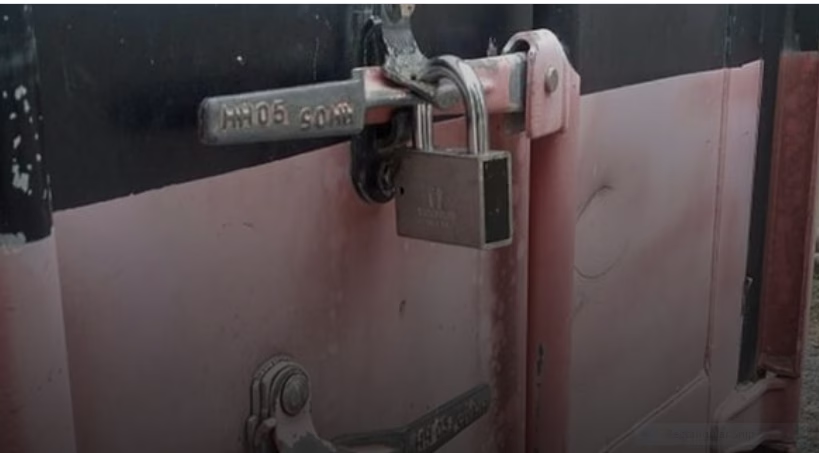The Kenya National Examinations Council (Knec) has introduced smart padlocks to secure examination materials stored in 250 containers across the country in a pilot initiative that could be rolled out, if successful.
Knec has stationed a total of 642 containers nationwide to store examination material. The smart padlocks usher in a new era of digital vigilance in exam management, which has for years presented a headache to the council and security agencies.
“For the first time, Knec is piloting smart digital padlocks. The locks are linked to Knec command centre, allowing real-time tracking of the exact time each container is opened and locked,” explained Education Cabinet Secretary Julius Ogamba.
Knec Chief Executive Officer David Njengere told Nation that the introduction of smart padlocks is to secure examination materials, in line with the Knec Act of 2012.
“The storage of examination materials was originally prescribed to be in police armouries. However, by 2015, it was discovered that was an area of exposure. Therefore, in 2016, the council put up containers instead of using police armouries,” said Dr Njengere.
The current double-locking system involves two physical padlocks with separate keys held by the sub-county director of education and the deputy county commissioner. Each lock is unique, opening in opposite directions; one clockwise and the other anticlockwise, ensuring no single officer can access exam materials alone.
Each container is manned by four armed security officers on a 24/7 basis once the examinations are delivered to the sub-counties. Additional security officers are deployed when need arises.
The new smart padlocks enhance this system by allowing Knec to remotely monitor container access in real-time. Dr Njengere said the containers have a double locking system with two padlocks.
The two keys are given to the sub-county director of education and the deputy county commissioner. Each of the two padlocks per container have individualised special code and respective key that cannot open the other. They are marked for each designated officer. Each padlock opens in a different direction. One opens anti-clockwise and the other one clockwise.
“The purpose of doing that is that one person cannot enter without the other. Here you have committed two people for that work. Using technology, you can make it easier, so that you have one person. But it’s a smart padlock, which means when you open it, we can see it from our end,” explained the examinations boss.
The smart padlocks mean that when the container is opened, the Knec command centre is alerted, adding a layer of digital vigilance to physical security. Previously, many cases of examination malpractice have had to do with early exposure.
In case of emergencies, such as a sick candidate requiring separate handling, officers must get clearance from Knec before accessing the container. Even then, the examination papers must be handled separately to avoid a mix-up.
Dr Njengere explained that the system is designed to detect any breach.
“If a container is scheduled to be opened at 7:00 am, and someone attempts to open it earlier or later, the system alerts us immediately. So, it is a more reliable way of dealing with any challenge because we also have entry locks from our end,” added Dr Njeng’ere.
The smart padlocks are being piloted in various regions, including remote areas like North Eastern Kenya, to test their functionality under different conditions, such as poor internet connectivity.
“We are testing the effectiveness before full implementation,” added the CEO.
He said the smart padlocks system is foolproof and leaves a footprint where Knec can tell the time every container was opened.
“We are piloting its use in different locations. For instance, if it’s North Eastern, we see with that kind of area that has no internet will the padlock work? We are piloting the use of the padlock,” added Dr Njengere.
Deputy County Commissioners (DCCs) and Assistant County Commissioners (ACCs) are involved in the daily opening and closing of the containers in their respective sub-counties.
Once the examination papers for the day have been issued, the container must be locked to be reopened when candidates’ answer scripts are returned after the day’s examinations. The security officials in charge of the container must adhere to the rules pertaining to the opening and closing of the container.
Security officers will be used to escort the examination materials from the Knec warehouse to the examination storage facilities in the sub-counties. Upon arrival at the sub-counties, the examinations will be handed over to the Sub-County Directors of Education and the DCCs.
All question papers will be escorted by armed security officers each day of the examination when the centre managers will be collecting and returning the candidates’ answer scripts to the container.
Centre managers must hand over examination materials to the supervisor once they arrive at the examination centre. At no time should the examination papers be in the centre manager’s office.
Upon completion of the examinations, Knec will liaise with the SCDEs and DCCs on when the candidates’ answer scripts will be returned to Knec premises under armed security escort, for marking.
A total of 996,078 candidates registered for the Kenya Certificate of Secondary Education (KCSE) examination, 1.29 candidates registered for the Kenya Primary School Education Assessment (KPSEA) while 1.1 candidates who are pioneers of the Competency Based Education will sit the inaugural Kenya Junior School Education Assessment (KJSEA) this year.
Knec will be administering the national examination and assessments to a total of 3.4 million candidates.
During the 2025 KCSE examination, Knec will involve 10,765 centre managers, 12,126 supervisors, 54,782 invigilators, 22,247 security officers and 2,692 drivers. Centres that have both KJSEA and KPSEA will be managed by 24,213 centre managers, 26,479 supervisors and 125,492 invigilators.
A total of 2,568 security officers have been engaged to secure the containers.
